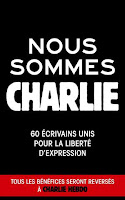 |
| https://en.wikipedia.org/wiki/Grinch |
For Americans, the
stretch between Thanksgiving and New Year's Day is supercharged with
giving and getting. It's no different for us Americans living in
France.
But lest we forget,
the year-end also brings the close to the dreaded tax year.
Faced with huge
French tax bills, I asked my financial adviser friend out to lunch.
What do we do? I asked, hoping she would make our bills disappear.
She didn't have an
easy out. Instead, she talked “tax strategy”: Sock it away, and
give it away.
To reduce our tax
bill, she said, we had three choices: Take advantage of French tax
breaks for investing in retirement funds, or another break for
charitable donations. (So far, so familiar to U.S. tax breaks.)
Or, we could just
pay the tax bill.
Right!
So we made an
appointment at our bank. This was no fun at all. Our bank took a 3%
fee for taking our money, and offered very little in the way of
return. Plus, our money was locked up until retirement day. For our
bank, it is much better to receive than to give.
One
charity we picked that is
close to my heart as
a journalist is Reporters Sans Frontières (RSF
or Reporters Without
Borders), which promotes and
defends freedom of information and freedom of the press, and helps
journalists working in dangerous areas.
For
example, RSF is currently campaigning to free from
prison Can Dündar, the
editor of the Turkish daily newspaper Cumhuriyet.
That's because the newspaper reported in May that Turkey's secret
service was delivering arms to Islamic groups in Syria. Turkey has
accused Dündar of espionage and terrorism.
I
was happy
to
double my donation through my company's matching gift program, as
part of their Giving Tuesday campaign. If you haven't heard of it,
Giving Tuesday is the annual
drive after Black Friday and Cyber Monday. Which is right after
Thanksgiving Thursday.
Death.
Taxes. Matching Gifts. Giving Tuesday. There
are so many reasons to give, whether it's from the bottom of your
heart, or the bottom line of your tax bill. I'm one-half Grinch,
so I need all the reasons I can get. I mean give.
Rose Marie Burke, an editor and journalist, writes a blog about her personal insights into life in Paris. After 20 years in the City of Light, she still calls her native Pittsburgh "home."








